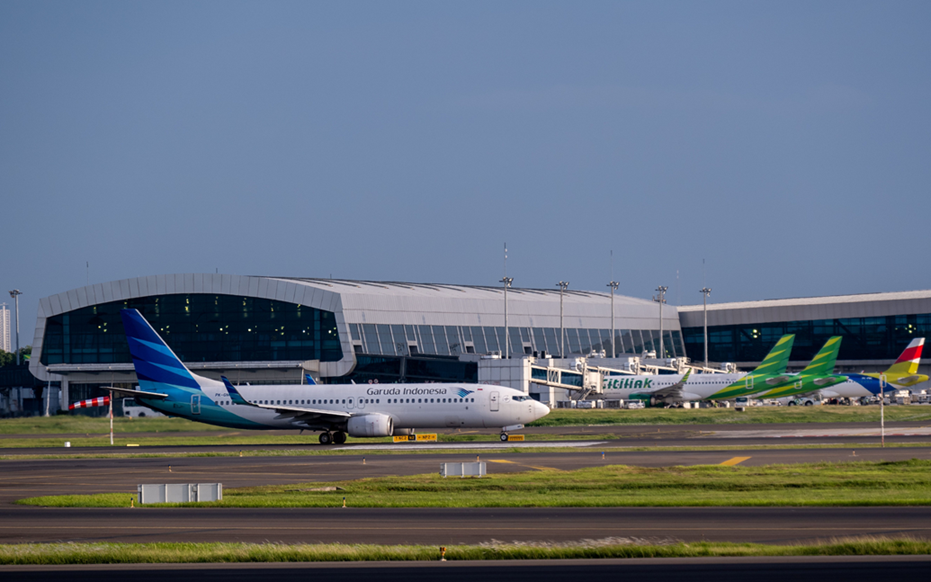Boyd Whalan, Queensland Trade and Investment Commissioner for Indonesia, outlines how Queensland’s experience in aviation training and workforce development presents real opportunities for collaboration.
Indonesia sits at the heart of one of the world’s fastest-growing aviation markets. With 685 million people in Southeast Asia and proximity to powerhouse economies like China, Japan, and Korea, the nation is primed to become a major player in global aviation.
The rise of homegrown giants including Lion Air, Southeast Asia’s largest airline, is proof of Indonesia’s potential. But to cement its status as a true aviation hub, Indonesia must address critical challenges in infrastructure and workforce development.
Aviation is a strategic sector that drives tourism, trade and industrialisation. With over 680 airports across the archipelago, air travel has become essential for connecting remote islands, attracting investment, and ensuring the smooth flow of goods. In 2023 alone, Indonesia’s airlines transported more than 111 million passengers and nearly one million tons of cargo.
Beyond transportation, the aviation sector is fuelling industrialisation—one of President Prabowo Subianto’s key priorities. A robust network of manufacturers and suppliers has emerged to service the country’s growing fleet, spurring the development of industrial hubs like Batam.
Opportunities to address infrastructure strains
Given these strengths, Indonesia now has the opportunity to address some historic challenges.
Its largest airport in Jakarta lags Singapore and Bangkok in passenger traffic, and the country faces a pressing shortage of skilled aviation professionals. Meeting this opportunity is critical to unlocking Indonesia’s full aviation potential.
Indonesia has 17 international airports, yet most international flights still funnel through only two: Jakarta and Bali.
This over-concentration strains existing infrastructure and limits connectivity to other key regions.
The government recognises this issue, with State-Owned Enterprises Minister Erick Thohir pushing for better airport management to compete with regional leaders. But improving physical infrastructure is only part of the equation. A more immediate challenge lies in the human capital required to support the sector’s rapid expansion.
Aviation skills and training in demand
Indonesia’s aviation industry is already grappling with a shortage of skilled professionals, from pilots and maintenance technicians to cabin crew and airport personnel.
As top talent increasingly migrates to lucrative opportunities in the Middle East and beyond, the gap is widening.
The solution lies in stronger partnerships between industry, training institutions and government.
Indonesia must invest in aviation education, ensuring that its workforce is equipped with internationally recognised skills.
This requires access to advanced training tools such as flight and engine simulators, virtual reality (VR) systems, and state-of-the-art maintenance equipment. However, these technologies come at a cost—up to 50% of total training expenses.

Flight traffic: Jakarta Airport (pictured) and Bali facilitate the majority of flights from Indonesia's 17 international airports.
Brisbane training partnership creates training runway
Strategic partnerships can help bridge this gap, and Indonesia need not look far for inspiration.
Australia has successfully leveraged industry training collaborations to strengthen its aviation sector. A prime example is Aviation Australia, a government-backed training institution established in 2001. Today, it is the country’s leading aviation and aerospace education provider, offering specialised programs tailored to industry needs.
Programs like this have been instrumental in ensuring Australia maintains a skilled workforce, boosting both productivity and economic growth. Indonesia, with its young and ambitious workforce, has an even greater opportunity to replicate this success.
To fully capitalise on Indonesia’s aviation potential, the government, industry leaders and educational institutions must work together to build a world-class aviation workforce. Strengthening training programs, expanding partnerships and embracing cutting-edge learning technologies will not only secure Indonesia’s place in the global aviation market but also drive broader economic growth.
With the right investments and strategic vision, Indonesia can become a true regional aviation powerhouse, connecting the world while fuelling its own prosperity.
A variation of this editorial was first published in The Jakarta Post on 21 March, 2025.
Boyd Whalan
Queensland Trade and Investment Commissioner – Indonesia
Boyd Whalan commenced as Queensland Trade and Investment Commissioner, Indonesia in January 2024. Based in Trade and Investment Queensland’s Jakarta office, Boyd leads business opportunities across the archipelago while growing trade and partnership relationships between Queensland and Indonesia.
Prior to joining Trade and Investment Queensland, Boyd held the role of Vice President – Strategic Partnerships with Indonesian tech company Bukalapak. He previously worked with the Department of Foreign Affairs and Trade at the Australian Embassy (Jakarta), Australian Embassy (Beijing) and as a Trade Policy Advisor (Canberra).
Is your business ready to unlock global markets? Learn more about your future export success through TIQ.
Whether you are an experienced exporter looking to expand your global footprint or a new exporter starting your journey, TIQ can help you scale your business internationally.
